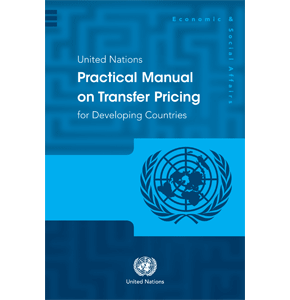Capacity Development: Transfer Pricing
Transfer pricing refers to the mechanism by which cross-border intra-group transactions are priced. In itself, it is a normal incident of multi-national enterprise (MNE) operations – for example, it allows MNE to determine which parts of the group are profit- or loss-making. However, if the method used to determine the price of such transactions, for whatever reason, does not reflect their true value, profits might effectively be shifted to low-tax or no-tax jurisdictions and losses and deductions to high-tax jurisdictions. This unfairly deprives a country of tax revenue, reducing the amount of resources available for funding its development objectives. Apart from tax base erosion, it can also lead to double taxation, which might undermine the investment climate, which is a critical factor for the promotion of foreign direct investment.
Both the United Nations Model Double Taxation Convention between Developed and Developing Countries (the United Nations Model Convention) and the OECD Model Tax Convention on Income and on Capital have essentially followed the same test of whether transfer pricing has occurred at a proper price or range of prices, namely whether it has occurred at an “arm’s length price”, the price that would be paid in a market with each participant acting independently in its own interest.
Developing countries face particular difficulty in applying the “arm’s length principle” in practice, especially as many MNEs have unique and hard to value intangibles or engage in complex transactions involving many different elements that would not be replicated in any market. Addressing these practical complexities relies heavily on the availability of data and expert skills, often posing special difficulties for developing countries.
In October 2012, the United Nations Committee of Experts on International Cooperation in Tax Matters adopted its United Nations Practical Manual on Transfer Pricing for Developing Countries (United Nations Transfer Pricing Manual), which was authored by its Subcommittee on Transfer Pricing — Practical Issues. This applied tool addresses the difficulties faced, especially by developing countries, in applying the “arm’s length principle” as well as some of the OECD Transfer Pricing Guidelines and the need for clear and practical guidance for those countries on the policy and administrative aspects of applying transfer pricing analyses to some of the transactions of MNEs.
In order to provide further assistance in this area, the United Nations Capacity Development Programme on International Tax Cooperation focuses on strengthening developing countries’ capacity to apply the “arm’s length principle” in taxing MNEs. The main tool to deliver relevant capacity development activities is the UN Course on Transfer Pricing, which is based on and facilitates reading of the United Nations Transfer Pricing Manual. It provides an introduction to transfer pricing principles and methodologies and deals with the main practical issues faced by developing countries in applying these principles and methodologies. The UN Course is complemented by the UN Primer on Transfer Pricing, which is intended for officials with no experience in transfer pricing.

